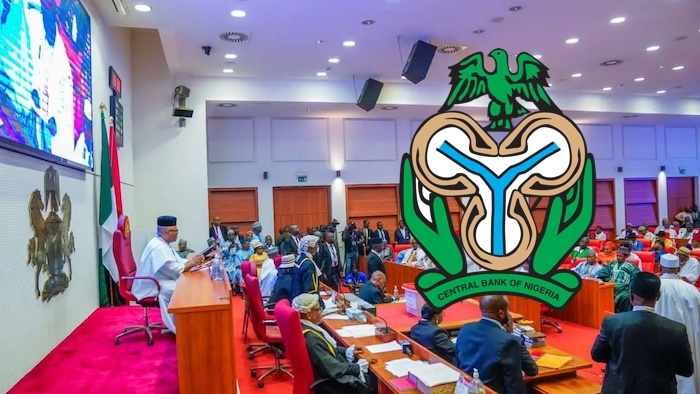The Nigerian Senate has rejected a bill seeking to empower the Central Bank of Nigeria (CBN) to monitor, control, and determine the basic exchange rate for purchasing and selling foreign exchange in the country. This decision came after the introduction of the “Foreign Exchange Control and Monitoring Bill 2024” at the plenary session on Thursday.
Lawmakers expressed concerns that new legislation to regulate the foreign exchange market could be counterproductive, given the current measures by the CBN. Key figures such as Solomon Adeola (Chairman of the Appropriation Committee), Tokunbo Abiru (Chairman of the Banking, Insurance, and Other Financial Institutions Committee), and Aliyu Wadada (Chairman of the Senate Public Account Committee) voiced their reservations.
Senator Ibrahim Dankwambo, representing Gombe North, warned that passing the bill could lead to confusion among Nigerians. Senate President Godswill Akpabio, who presided over the session, urged Senator Sani Musa (APC Niger East), the bill’s sponsor, to withdraw it for further consultations.
Despite widespread rejection, Senator Musa defended the bill, arguing it would provide for the control, monitoring, and supervision of transactions in the foreign exchange market. Introduced for the first time on February 20, 2024, the bill aimed to repeal the existing Foreign Exchange (Monitoring and Miscellaneous Provision) Act Cap. 34, Laws of the Federation of Nigeria, 2004.
Senator Musa outlined that the proposed legislation would regulate, monitor, and supervise foreign exchange transactions, contributing to the national economy’s sound development. He stated that the bill would stabilize the currency’s value by liberalizing foreign exchange transactions and ensuring market functionality.
“The bill seeks to expand Section (1) of the existing Act to incorporate three new provisions for clarity and to empower the Central Bank of Nigeria to administer, control, and manage all dealings and transactions in relation to foreign exchange matters,” Musa explained.
Musa added that the bill would require authorized dealers to report foreign exchange sources exceeding USD 10,000 to the CBN and obtain prior approval for importing foreign currency notes. It also included provisions for licensing, suspension, or revocation of licenses for foreign exchange dealings.
However, Senator Adams Oshiomhole cautioned against passing the bill, emphasizing that it might overstep the Senate’s authority by encroaching on the CBN’s regulatory powers. “We have to be careful because we cannot speculate. Anything done in this house, Nigerians will take it very seriously because we have the power to make laws,” Oshiomhole said.
He suggested that any further regulation of the foreign exchange market should originate from the executive branch to avoid a sector crisis. Oshiomhole concluded, “Senators who have spoken had summarized and amplified meticulously, the contradictions and negative implications of passing the law.”
The bill’s rejection underscores the Senate’s stance on maintaining the CBN’s current role in foreign exchange regulation without additional legislative intervention.
